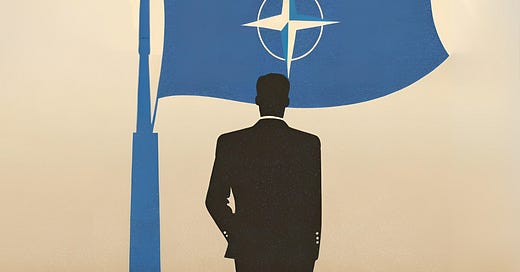
Besides being a precipitating event to the Second World War, the Munich Crisis of 1938 remains so evocative because it conjures up naivety and hubris on the part of British and French decision makers in dealing with authoritarian great powers. For many, Neville Chamberlain, then Prime Minister, was foolish when he proclaimed that he secured ‘peace in our time’ by allowing Adolf Hitler to take Sudetenland from Czechoslovakia. Within six months, Hitler would move to seize the rest of Czechoslovakia before setting his sights on Poland. Appeasing Germany would fail as a policy, and before long, much of Europe would come under relentless assault in a global conflagration.
The popular image of an overconfident Chamberlain should not be the only public memory of September 1938. The powerless despair felt by Edouard Daladier, then President of France, is perhaps the real cautionary tale that the Munich Crisis should impart. Daladier was much more attuned to the expansionist threat that Nazi Germany had posed, and yet he felt, rightly or wrongly, unable to do much about it but defer to Chamberlain because France could not act on behalf of its Czechoslovakian ally without British support.
The Munich Crisis has become a terrible cliché in international politics, not least because the mistaken lesson of this experience for many is that appeasement never works and those who try it will inevitably suffer historical opprobrium as Chamberlain has. Nevertheless, the sense of helplessness that Daladier perceived back then is a cautionary tale for the tumultuous present.
As recent events at the Munich Security Conference and the subsequent United States (US)-Russia bilateral meeting in Riyadh indicate, the new Trump administration appears willing to negotiate unilaterally with the Kremlin on Ukraine without either Ukraine or European allies, and to consider such breath-taking concessions as it has at the expense of Ukraine and European security more broadly. One is tempted to feel as Daladier did: there is nothing that can be done without American support and we become paralysed in our anguish.
That would be a mistake. The US does provide the bedrock of European security by way of its continued North Atlantic Treaty Organisation (NATO) membership and extensive military presence on the continent. It has provided significant military support to Ukraine, with one recent estimate pegging it at satisfying about 40% of Ukraine’s military needs.
For European NATO countries serious about their own security, self-pity is a dead end and introspection has become useless.
Still, the European side of NATO has the economic and military wherewithal to be much more confident than it has been when dealing with Russia or, for that matter, an unreliable US. The United Kingdom (UK) and other European powers are far richer and more prosperous than Russia, whose economy has become ramshackle and distorted by its war against Ukraine. Most European countries have been making significant investments in their militaries since 2014, while Britain and France already have their own nuclear weapons arsenals that in turn can create risk for Russia. European NATO countries could allow their continent to become an object of great power politics, but doing so would be a concession not to reality but rather to their own lack of confidence as a collective.
For European NATO countries serious about their own security, self-pity is a dead end and introspection has become useless. Although productivity shortfalls and sputtered growth strategies characterise their economic situations, diplomatic assertiveness and reviving military power have become indispensable for their own security. Ammunition production, fortifications, air defence, and mobile armour all are worthy investments in view of the threat that Russia poses.
European nations will have to build up critical enablers such as space-based intelligence, surveillance, and reconnaissance capabilities if the US is no longer a credible partner. That the UK has cobbled together this past Sunday a ‘coalition of the willing’ to continue arming Ukraine is an important step. More of such endeavours are necessary for Europe’s own sake.
Future historians may rationalise, even justify, current European inaction if leaders across the continent remain inert in the face of the many strategic risks created by the new Trump administration.
Of course, contextualising Daladier’s choices in September 1938 is important. The Great Depression had a protracted effect on France and upended its finances. In an eerie resemblance to France today, division in the French Parliament produced a political stalemate that eroded support for those in power. Still, in view of how France would experience 1940, with its shock defeat and subsequent occupation by Nazi Germany, it is hard to imagine French leaders making even worse choices, especially since Berlin was not ready for a continental-wide war in the mid-to-late 1930s.
Future historians may rationalise, even justify, current European inaction if leaders across the continent remain inert in the face of the many strategic risks created by the new Trump administration. They may very well invoke as factors political polarisation and post-pandemic economic distress across the continent as well as the organisational difficulties posed by the need for consensus in a large and diverse alliance such as NATO.
Never is a time when constraints on action do not exist, however. What defines leadership and initiative is the willingness to try to overcome those constraints. Daladier did not do so, and that is the fate that British and European leaders should best avoid.
Dr Alexander Lanoszka is an Associate Fellow at the Council on Geostrategy and Associate Professor in International Relations at the University of Waterloo.
To stay up to date with Britain’s World, please subscribe or pledge your support!
What do you think about this Memorandum? Why not leave a comment below?




